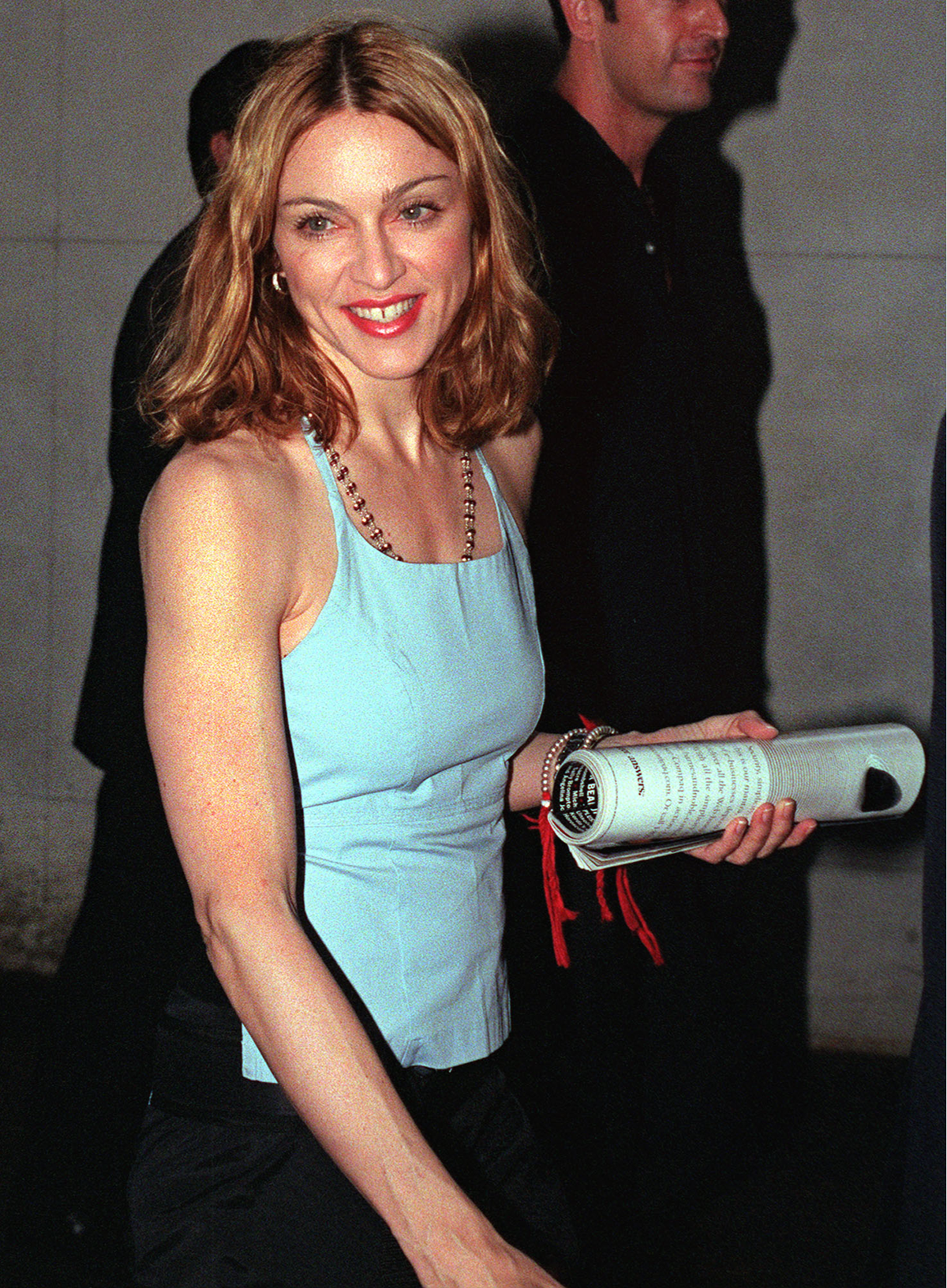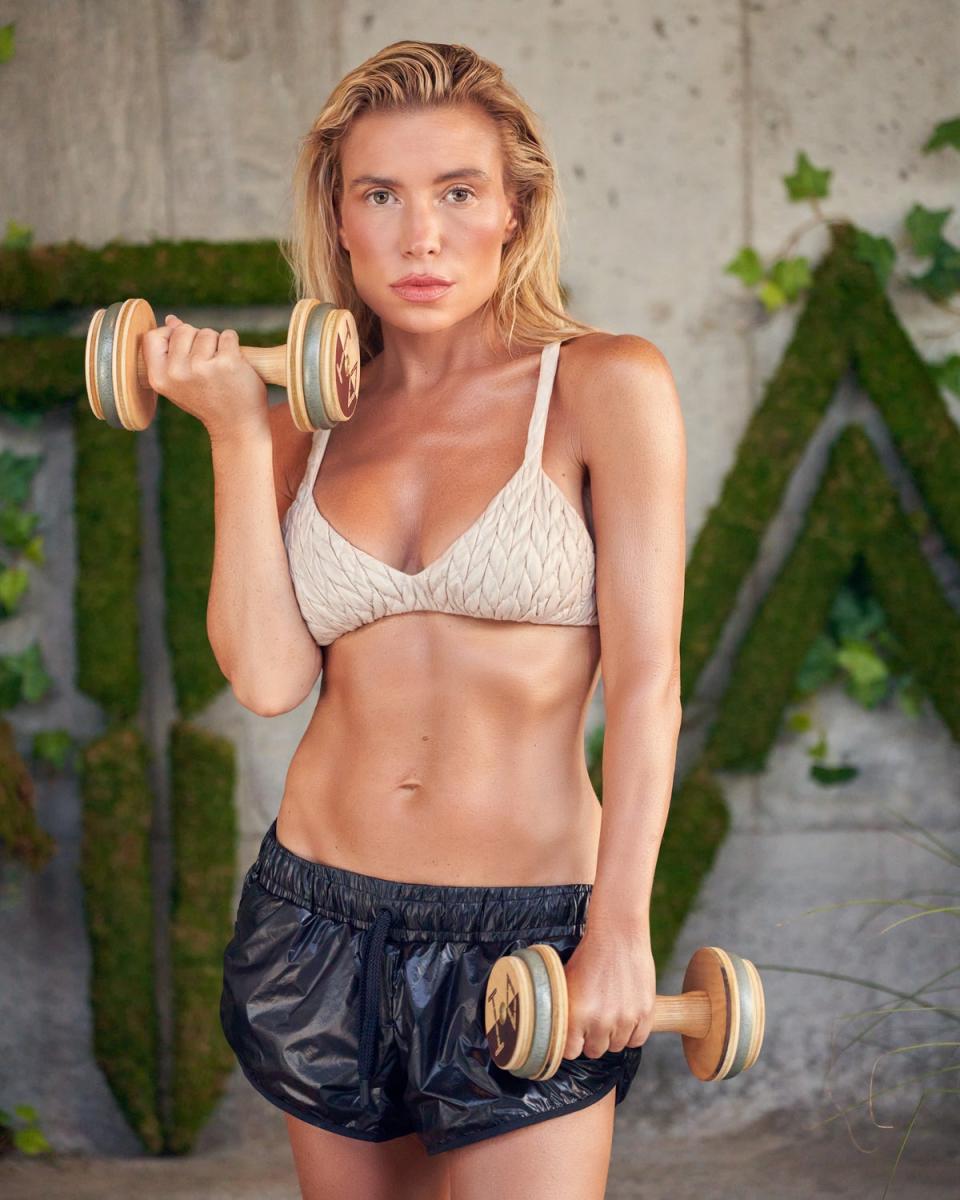To lift or not to lift: should all women be weight training?

Growing up, the message on muscle was singular: you needed them, sure, but they shouldn’t be very visible. This was back in the ‘90s, when the only women I knew of who showed off their bulging biceps were Gladiators on the Saturday night show, or, well, Madonna.
Weights were off the table if you wanted that ‘90s lean look, and most classes were accordingly focussed around cardio, with three exercise gurus leading the way: Mr Motivator, Jane Fonda, and the Cindy Crawford in her Shape Your Body work out video.
That ideal — and the fear — stuck, and as I grew up I dodged weights, instead hitting the cross trainer or going for long walks to stay fit, despite fashion changing drastically and a more obviously athletic physique (which actually was closer to the way my body yearned to look) rising in popularity.
This changed dramatically two years ago during a trip to Mayrlife, when I tried something called Body Composition Analysis, where a scanner assesses precisely what you’re made of. I thought I’d be completely fine — my BMI was in the ‘normal’ zone, I ate healthily, and I moved regularly — but the results were sobering. They primarily showed that I had nowhere near enough muscle and way too much fat on me. Aghast, I asked the doctor what I could do: “concentrate on building muscle, that is the primary thing. That will also reduce the fat over time.”
I followed the doctor’s orders to the letter, exercising weekly with personal trainer Sophie Allin, asking her to focus on functional moves that included weights to add muscle. I was a bit nervous and emphasised many times to Sophie that I was keen to build an armour of muscle all over versus the tight bulky kind that knots on the surface, and she assured me that how the muscle forms is entirely dependent on the exercise combined with the number of reps, so I put my trust in her and faithfully carried on.
As time progressed, I felt a hell of a lot better. Less tired in the afternoons, my periods were more regular and hormones more balanced, I more able to lift things without straining — that sort of thing. A year after my first test, I went for another Body Composition and the results couldn’t have been more different: despite being broadly the same size and weight, my muscle had shot up to the ‘ideal’ zone for my frame, while my fat had plummeted.
I felt incensed that I had been put off this sort of exercise, confused by notions of BMI and weight overall, influenced by the fashion during my childhood. Especially once I started reading up on muscles and how vital they are to overall health.
“There are so many benefits to building muscle,” celebrity nutritionist and trainer Zana Morris tells me. “They include strength, stamina, protected joints, higher metabolism (so it’s easier to lose fat), better posture — and it will impact all lean body mass, so your heart and organs are likely to be healthier, impacting hormones, and even mood.”
I asked if women particularly could benefit from building muscle. “Women have naturally lower testosterone levels, which impacts how rapidly we build and maintain muscle.” Celebrity trainer Louisa Drake adds that “women have thinner bones compared to men and are more prone to suffering from osteoporosis, so bullet proofing our bodies via weight resistance and strength-based exercises is best.”
So, yes, all humans need to work on muscles — but for women it can be a slightly more pressing — excuse the pun — issue.
Age also plays a role, with Zana explaining that “we lose approximately 2.25kg of muscle every decade from the age of 30 — and restrictive diets, excessive training, stress, and a lack of sleep all accelerate the loss.”
The experts I spoke to are very keen to debunk the idea that building muscle necessarily equals bulk in women, with Drake saying that “a woman’s ability to build excessive amounts of muscle tissue is limited by her natural hormones,” while personal trainer Holly Roos says “we meed to squash the myth that building muscles “bulks” women — it doesn’t. You are building a strong body.”

That all said, if you’re starting from zero, going to your gym and lifting heavy weights might lead to more risks than rewards. Fitness pioneer Tracy Anderson is “concerned that a lot of people tell women to lift weights right now because otherwise their bones will crumble. Don’t just go and start to lift weights — nobody should lift heavy things without knowing their own body in motion.”
Tiptoeing in seems to be the general consensus, with Drake advising building a strong foundation and mastering basic movement patterns before adding any external forces like weights, resistance bands, or machines, and asking from advice from a trainer if unsure of how to proceed.
Finally, if you are trying to gain muscle, remember that rest is as crucial as the training, with Zana explaining that “training actually breaks down muscle — it is the nutrition and rest period that ensures recovery and building.”


